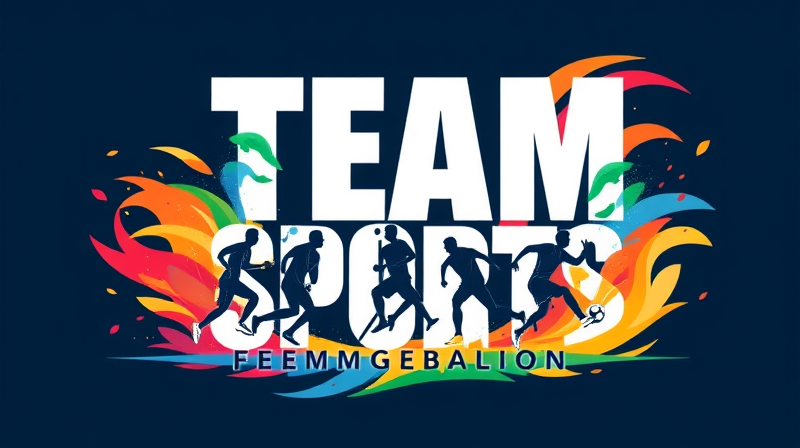Team sports are more than just games; they represent the spirit of collaboration and the drive for excellence. At their core, team sports emphasize teamwork, skill development, and strategic thinking. Whether it is the energy of soccer, the precision of basketball, or the coordination of volleyball, understanding these fundamentals can inspire anyone to participate, develop self-confidence, and improve both physical and mental well-being.
Sports have the unique ability to unite people of all ages and backgrounds. By placing emphasis on collective achievements and shared objectives, team sports nurture not only athletic skills but also life skills such as communication, problem-solving, and leadership. For many, the journey in sports begins with learning the basic building blocks which, when refined, lead to improved performance and deeper enjoyment of the game.
Core Principles and the Impact They Have
One of the central pillars of team sports is teamwork and collaboration. Every game relies on players working together, sharing their unique skills to reach a common goal. This collaboration is nurtured through consistent practice and open communication. Whether on a tightly organized soccer field or a fast-paced basketball court, the ability to trust and rely on teammates can often be the difference between winning and losing.
Another defining factor is the strict adherence to rules. Each sport has its own set of guidelines that not only ensure fair play but also add structure which helps players learn discipline and strategic thinking. Rules and objectives provide a framework in which creativity and athleticism can flourish, turning individual talents into a cohesive force. Maintaining such standards also ensures that every player is on an equal footing, fostering a sense of fairness and unity.
At the heart of every athlete's improvement lies the mastery of fundamental skills. These include throwing, catching, passing, dribbling, and kicking. The repetition of these basic movements forms the cornerstone of athletic success. As players continue to practice, these skills evolve into more advanced techniques which can be tailored to the demands of specific sports, transforming raw ability into refined talent.
It is not just about physical prowess, but also about developing strategies and tactics. Each sport encourages specific plays—be it offensive strategies that break through defenses or defensive formations that neutralize the opposition's strengths. Learning when to employ these tactics requires not only practice but also a deep understanding of the game’s rhythm and pace, skills that improve with experience and guidance.
Physical fitness and conditioning are essential elements in any sport. Athletes engage in specialized training to boost endurance, strength, agility, and speed. Staying conditioned throughout the duration of a game is crucial, as it allows players to perform at their best even under extreme conditions. This focus on fitness translates into overall better health and helps in preventing injuries.
Complementing physical preparation, mental readiness and clear communication play significant roles in a team's performance. Whether it is rallying the team during a critical moment, or providing instant feedback on the field, effective communication enhances both strategy execution and the overall enjoyment of the game. Leadership, delivered by coaches or captains, sets the tone, instilling confidence and direction in every player.
In popular team sports, specific skills are honed to meet the unique demands of the game. Below is a list of some well-known sports and their key elements:
- Basketball: Emphasizes passing, dribbling, and shooting skills while promoting a fast-paced play and strategic defense.
- Soccer: Focuses on kicking, passing, and goalkeeping, where formations and counter-attacks shape the course of the game.
- Baseball/Softball: Requires precision in batting, throwing, and catching, along with a dynamic understanding of offensive and defensive roles.
- Volleyball: Relies on coordinated actions such as serving, passing, spiking, and blocking, making communication essential for success.
- Lacrosse: Combines running, catching, and shooting with the use of a stick, demanding agility and coordinated teamwork.
Furthermore, basic training programs available for many of these sports highlight the importance of mastering these fundamentals. Youth clinics and camps are designed to introduce beginners to sports in a supportive, low-pressure environment. These programs are essential in building early confidence while simultaneously driving long-term engagement in sports.
The benefits of team sports extend beyond developing physical and strategic skills. Participation helps build mental resilience and provides valuable social experiences. Handling victories and setbacks teaches players about perseverance and adaptability while encouraging positive interaction and cultural exchange. This mix of mental and social learning equips individuals with life skills that are applicable both on and off the field.
Many athletes often share that their most cherished moments in sports come from the bond they forge with teammates and the lessons they learn in practice and competition. The shared struggles and triumphs cultivate a sense of camaraderie that transcends the sport itself, creating lifelong memories and relationships.
In summary, the fundamentals of team sports are not merely technical skills or physical conditioning; they are the embodiment of shared goals, strategic thinking, and the growth of personal character. Whether you are a novice just beginning your athletic journey or an experienced player looking to enhance your skills, focusing on these core elements can significantly improve your performance.
As teams continue to evolve with innovative strategies and tailored fitness regimens, the underlying principles remain the same. It is the unity, discipline, and resilience built through understanding these basics that define the true spirit of sports. By appreciating the importance of fundamentals in training, athletes are better prepared to face challenges, overcome obstacles, and ultimately lead with confidence and determination.
Embrace the journey of learning, practicing, and excelling in team sports. By putting in the effort to master even the simplest skills, you are setting the stage for future success both on the field and in life. Remember, the foundations you build today will guide you in reaching your full potential tomorrow.








